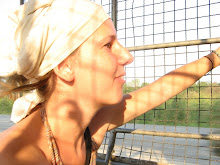The first time since I left
One of the hardest things for me about Myanmar is to measure the hope and assess the fear and danger among the people living under a cruel dictatorship.
Secondly I still do not know how to call this land. I asked many but most people inside seem to use Myanmar instead of Burma used by outside support groups. Burma is the name given by the British and strongly related to the name of majority of ethnic Burmans, and their language Burmese. Myanmar, literally meaning ‘quick strong’, is the name chosen by an illegal brutal military government disliked by most of the citizens, however more inclusive according to some members of the minorities. Equally confusing is that people define themselves as being ‘Myanmar’ but easily use words like Burmese food or Burmese army. Forgive me to use both.
Gambari and Sue visit Yangon
Before I wonder why the people did not move and why the police gathered near Sule Pagoda in the centre of Yangon (former Rangoon) I hear the name Gambari, the United Nations envoy for Myanmar. Soon some pick-ups with armed soldiers and a black car pass by after which the passers-by resumed their doings without showing any feelings.
“He comes and goes without bringing hope for the people” said the two priests I spoke on 5th of March. Next evening sister Cecilia, showing me the newspaper The New Light of Myanmar, says: “Gambari is here but no news about the content of the discussions, just a picture and the shedule of his meetings”. Some others tell me there is a rumour or a joke that he received some rubies.
In my hotel there is again no Internet connection. “Because of Gambari” the staff and clients whisper. The country’s two Internet servers are controlled by the military government. Access to the world wide web is scarce, especially outside the big cities, the connection sometimes (often) does not work or is extremely slow and if you manage to open your mailbox you are warned about ‘spies’ watching what you read and what you send through the servers. I do have access to the BBC TV-news reporting that Gambari is accused of being biased and of conspiring with Aung San Suu Kyi. The Generals also informed Gambari that no changes would be made to the proposed (unpublished) constitution.
The majority of the population in Myanmar struggles daily to survive and does not question politics to openly, exactly what the military regime wants. But those who had, often abroad, access to ‘higher’ and ‘more free’ education are very concerned about the plight of the people. “We try to inform the people about issues like AIDS, human trafficking but also about the dangers of the proposed constitution. But it is difficult, the people don’t understand” said the Sister. The Priests and Sisters emphasised their (obligatory) non-political role but they do share the wish for change.
The proposed constitution equals the prolongation of the military dominance for example by reserving 25% of parliamentary seats for the army. Opposition- and minority groups have little hope to get representatives elected due to regulations for establishing political parties and also Aung San Suu Kyi is excluded because of her marriage with a foreigner. The military government, The State Peace and Development Council (SPDC), warned the people in The New Light of Myanmar of March 5th that a 100% democracy is not possible and refers to the
The people mostly speculate about the way the referendum will be organized and some mention forced mass demonstrations. The Referendum Law for the Approval of the Draft Constitution (3,5 pages) was however published in the newspaper of February 27th in Burmese and February 28th in English. Repeatedly people told me newspapers are no longer read because “too many lies”. Unfortunately some activists miss out on some useful information this way. It is for example also possible to purchase a preliminary version of the constitution published in September
There is a lack of public debate and citizens can only discuss secretly the content of the constitution. Criticism can be punished with imprisonment up to three years. The owner of an Internet cafe was forced to close his business because he allowed clients to print a ‘political’ document. The government anyway causes enormous disruptions for people to communicate by controlling and shutting down the Internet and access to electricity. During and after the September protests also mobile phone connections were cut off.
The demonstrations in August and September and the short international media attention gave hope but simultaneously increased both anger and fear. The ‘silent’ activists remain realistic: “We know no country will interfere without served self-interest and we know we still have a long way ahead”. The people have no way how to protect themselves from the guns of the army but they crave for change. Opposition- and student leaders are almost all arrested or killed and everything is dangerous not only for the people directly involved but for family and neighbours as well. People told me about the shared desire expressed by the applause given in theatres and the mumbling in the tea shops. The latter I would witness many times across
Non-violence remains the wish of the people but the military government has repeatedly made clear not to be willing to hand over the power. “They are soldiers, they fight till they die”, my friend said followed by a painful silence filled with despair.


No comments:
Post a Comment